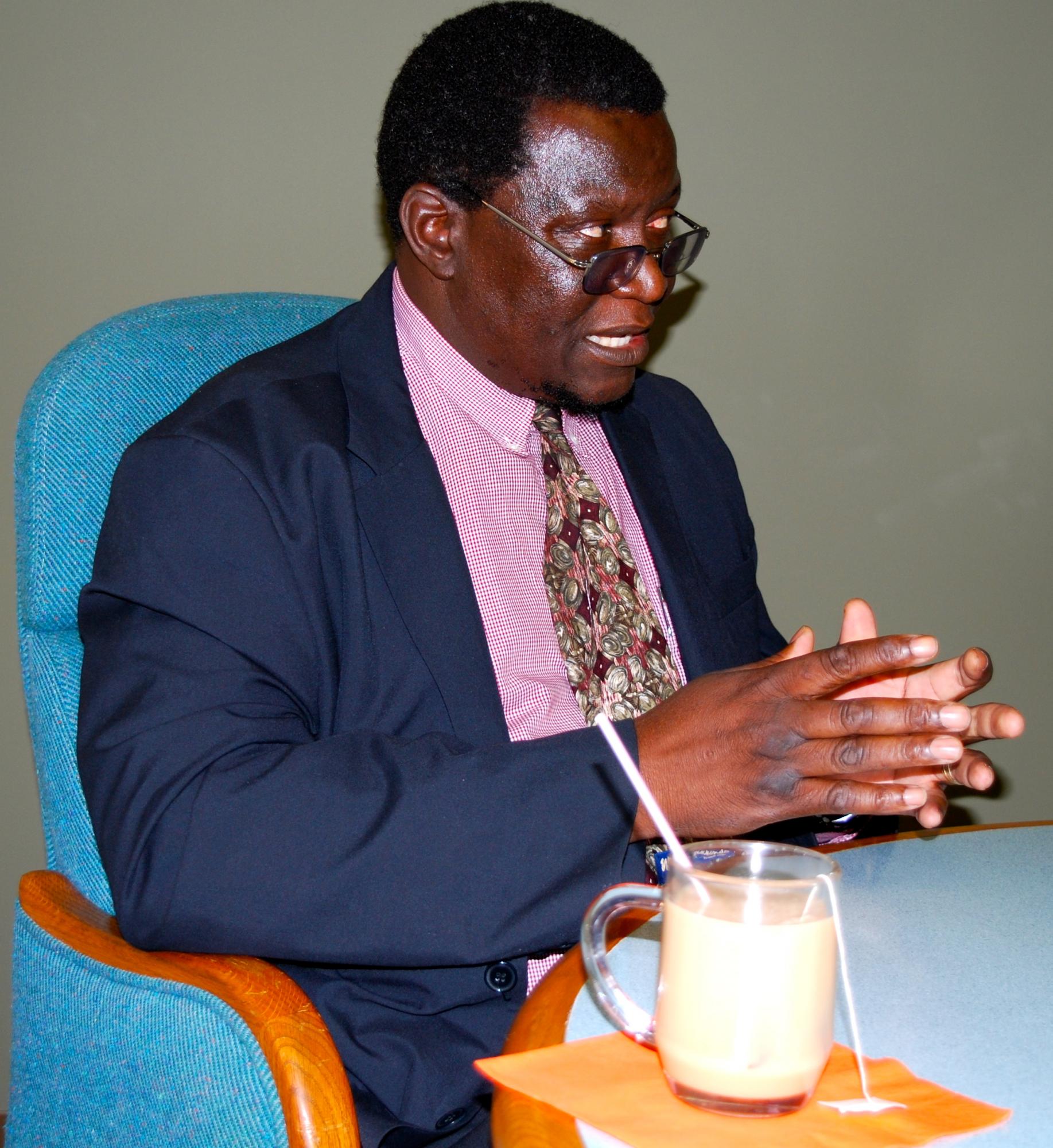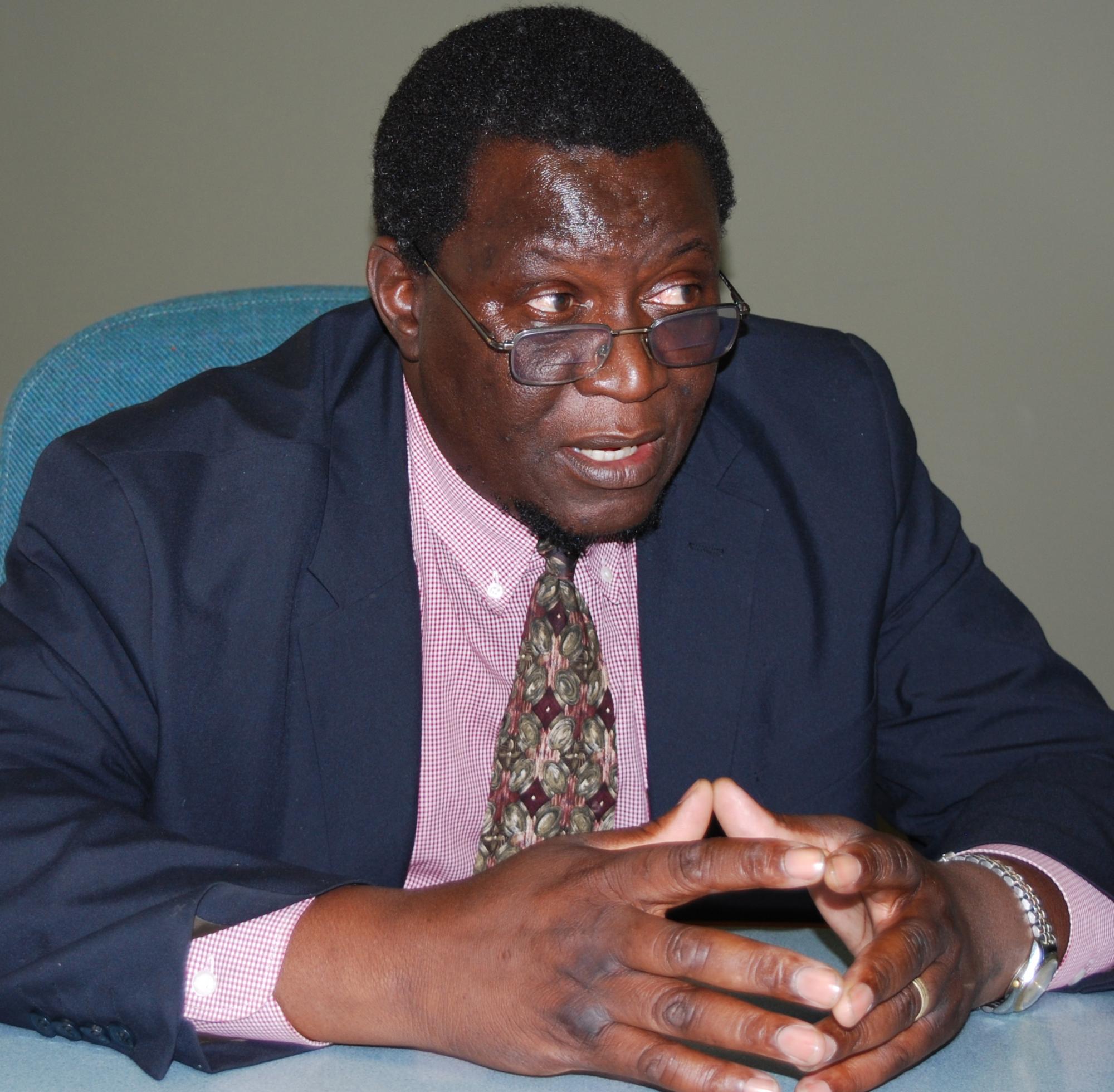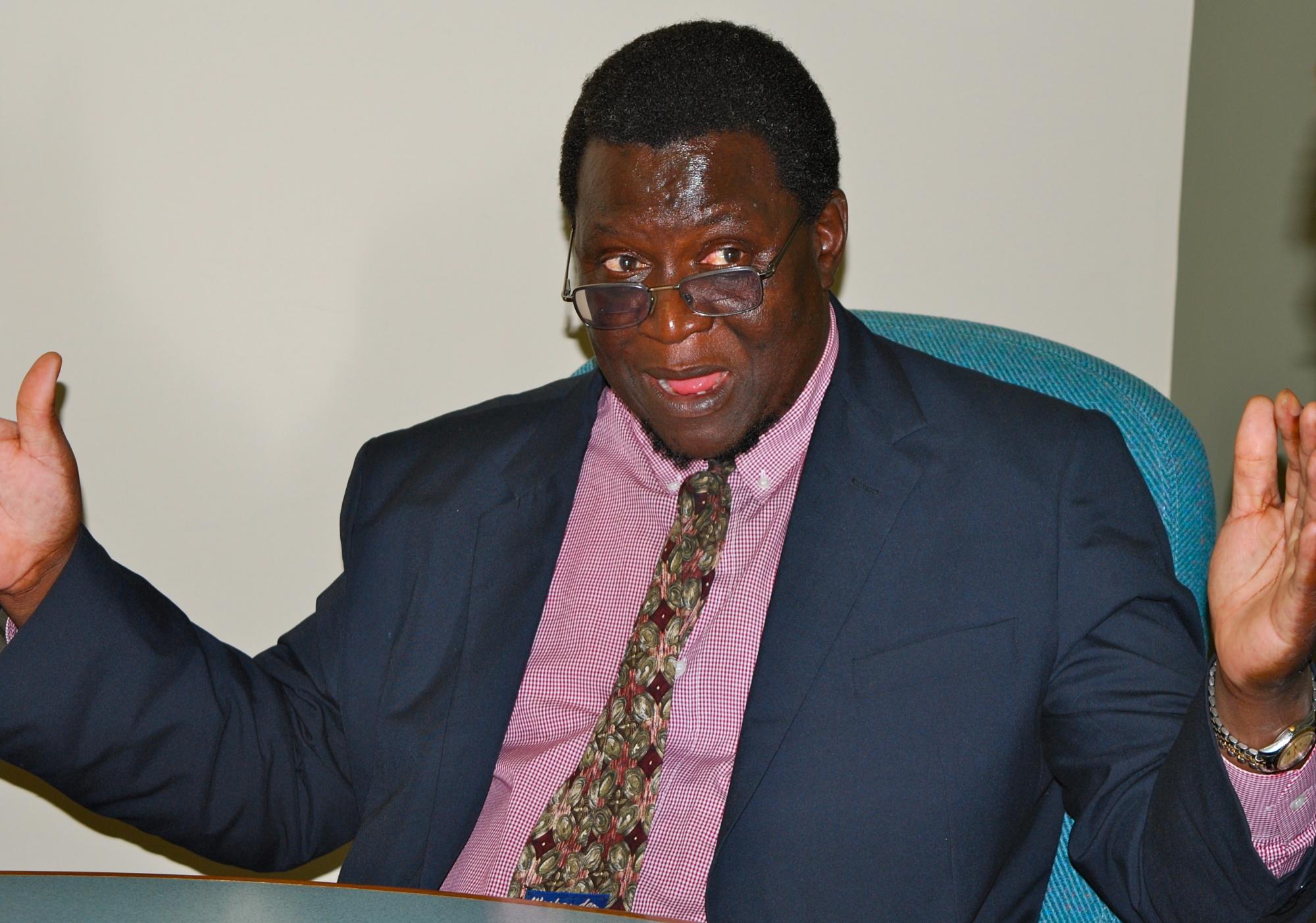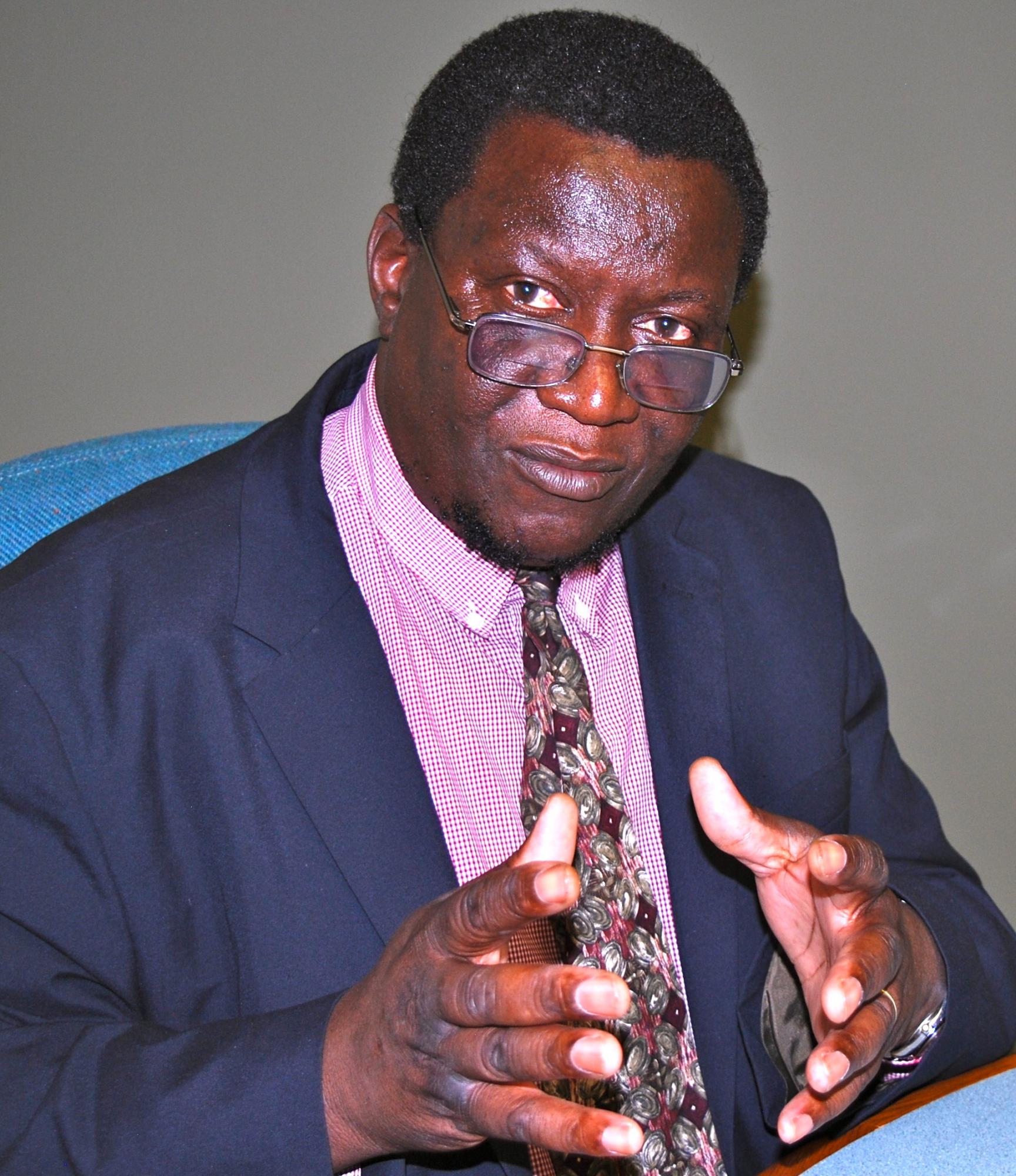Threatened with death by a group of Freedom Fighters when he was 19, Danisa Ndlovu confesses to sensing that he may have been born “for such a time as this.”
“For some reason I was singing a gospel song in a really loud voice that morning as I walked down to the river. When I realized there were fully armed militia right off the path, I just kept singing, although I knew I was in danger. I sensed that God was with me. And when the fighters ordered me to come into their circle and then began threatening me, I told them that they could kill me.”
Fear took a backseat to faith that day in the young Zimbabwean.
The moment became a touchstone for Danisa, who would become bishop of the Brethren in Christ Church of Zimbabwe in 2,000, when the country was burdened by scarcity of food and fuel, corruption and a seemingly uncaring government, an AIDS epidemic, and inflation of more than 1,000% a year.
Despite these devastating circumstances, Danisa and the more than 29,000 other Brethren in Christ in Zimbabwe, invited Mennonite World Conference to hold its 2003 Assembly in the city of Bulawayo. “We needed the encouragement and comfort of our sisters and brothers from elsewhere in the world,” reflects Danisa now, as he anticipates “PA 2015,” the forthcoming MWC Assembly to be held in Harrisburg, PA, July 21-26, 2015.
Early choices
One of eight children, Danisa grew up mostly under the care of his grandmother, because both of his parents needed to have paying jobs. “My grandmother had a great influence on my life and faith. She took me to church and Sunday school, which have always been part of my life.”
He went to Brethren in Christ primary and secondary schools in Zimbabwe, and was baptized while in high school.
But during his teen years, he went to live with his aunt in an area where there was no church. “I got involved with some boys. . . it was a kind of low point in my life. Yet in the mid-70s, after I went back home, I had such a hunger and thirst for God, I thought I might die.
“We had itinerant evangelists then, and I asked my mother when the next one would be coming to our area. I really thought I couldn’t wait. I was experiencing a dryness, an absolute lack of hope.
“When I rededicated my life to Christ on Good Friday in 1976, the evangelist asked me if I’d like to go to Bible school. When I told him that my parents had no resources, he asked me where Peter, the disciple, got money to pay his taxes. ‘From the mouth of a fish,’ I said.
“He told me to go to Bible school, and I went without money. That experience taught me to pray. I established a place to pray. And the fees came through. And that’s how I’ve lived my life.
Danisa expresses mistrust of the prosperity gospel. He says, “It promises that everything will be okay and fine. But that’s not true. There is a cost to following Christ. There will be sacrifice. Yet I’ve found that there will be enough to meet our needs.
“When I finished Bible school, but without a clear sense of what I should do, I was very downhearted and felt so alone. I asked God to help me understand what was going on, and on one dark day in a park, I discovered Psalm 37:7 – ‘Be still before the Lord. . . and wait patiently for him.’
“I jumped up, got my stuff, and went home, where I told everyone I was going to be an evangelist.
“One minister told me I looked really small and really young, but I said, ‘I want to go.’ Eventually I joined a program where I ministered to and visited churches as an itinerant evangelist.
“It was a tense time, and the country was volatile. The Freedom Fighters were always trying to recruit us. I prayed that if I was killed, there would be someone to replace me.
“I felt God protected me. One day I was sitting by myself in a church. Suddenly, a group of soldiers marched in, all fully armed, while I was sitting alone reading my Bible. They could have tortured or interrogated me, but they just passed through, in one door and out the next. We never spoke.”
Leadership influences
Danisa not only learned faith and fearlessness as a young person, he also learned leadership. “Part of this came from training, part came from my observing others, and part came from consciously deciding what I wanted to be and do. My father was a community leader, and he influenced me.
“When I was young and working at a Christian bookstore, the manager asked me, ‘Are you the son of an old man?’ I asked why he said that. He said, ‘The way you show respect, present yourself, and treat others makes me think that.’”
During the harshest times in Zimbabwe, as he presided over the funerals of numerous AIDS victims and guided church members in finding homes for countless orphans, Danisa, along with his wife, Treziah, disciplined themselves to give thanks for whatever they could.
The two had met at Bible school where both were students. “We had a serious relationship from the beginning, but we walked together for 11 years before we were married, because of getting our education and some family issues.
“When I went through challenging, tense times as an evangelist, Treziah and my mom were praying for me. So we’ve had a similar journey of faith as a couple.”
Danisa and Treziah are the parents of three young adult children – daughters Thinkgrace and Trustworthy, and son Devotion. “Their names reflect our gratitude and what we wanted to remember about what was happening in our lives when each one was born,” smiles Danisa.
He has drawn strength and perspective from his family when life in Zimbabwe as a church leader has been nearly crushing. “Whenever I’m home, as often as possible, I sit in the evening with my family. We’re open with each other about what’s making us happy or unhappy. We sing together, review the day, and encourage or chide each other!
“When I’m facing decisions, I tell my family what the various outcomes could be. This regular evening get-together I find to be very soothing and encouraging.”
Choosing to be thankful
Whether faced by imponderables in his country and home church, or the risks of planning an MWC Assembly in the U.S., Danisa takes the same approach. “For me, it’s a matter of trusting the promises of God and believing the Scriptures. We have not been told that all will be well. I have learned not to complain but to be thankful. Instead of asking, ‘Why, God?’ I give thanks for God’s love and presence.
“I find power in thanking and praising rather than insisting on answers. There is power in believing that God is here with me. When I face challenges in my leadership, I choose not to focus on the things that drag me down. I focus on God’s power and say, ‘Walk with me.’ This is not denial, which is cancerous. I may not have the answers, but I believe God has the answers.”
President of Mennonite World Conference since 2009, Danisa, on a recent trip to the U.S., spoke candidly but carefully about his hopes for PA 2015. “When the global church gathers next summer in Harrisburg, I’m hoping that the experience will be a window, an eye-opener, so all the churches who attend can see beyond themselves. We’re all tempted to believe that the church begins and ends with our particular group.
“I observe that congregations in North America are comfortable and relaxed and seem to feel that they have everything pretty much under control. But as a global church, we’re a family. And so it’s not a question of some of us ‘having’ and others ‘not having.’ We belong to each other. We have relationships.”
The gift of Mennonite World Conference
Nothing, says Danisa, beats spending five and a half days together as a global family, in the “neutral space” that Mennonite World Conference offers during its Assemblies. No agency, no national church owns that space. It is a place where churches can address each other in true mutuality, while discerning, worshiping, serving, and fellowshipping together. Danisa attended his first MWC Assembly in 1984 in Strasbourg, France. He was the youngest member of the delegation from Zimbabwe.
He looks forward to presiding over the PA 2015 Assembly, where a choir from Zimbabwe hopes to sing in the worship services. (“We’re praying that everyone will be granted a visa,” he says.)
“An MWC Assembly is a gift to all of us. By being together, we will experience receiving each other. We are part of a living body, and we have to sometimes be in the same space so we can look each other in the eye. While we’re in each other’s presence, we wait for the other’s response. That is showing real interest. When we come together and make the effort to see and hear each other, we begin to sense the other’s deepest feelings.
“The world is too small to live in isolation from each other – geographically and theologically. Each of the 101 national churches that are part of MWC brings its own particular self. Let’s appreciate our various traditions while we also work together.
“In North America, the Lord has given you the privilege of having the world on your continent – with your great international diversity together within your churches. My hope is that PA 2015 makes the churches in North America want to work together more.
“When we come together as Christ’s people, I should be able to plant my life in your life. That’s what it means to be vulnerable, to see the world differently, to belong to God and to each other as a family of faith.”
Article by Phyllis Pellman Good of Lancaster, PA, a writer and editor for Mennonite World Conference. Photos by Merle Good
 |
 |
 |
